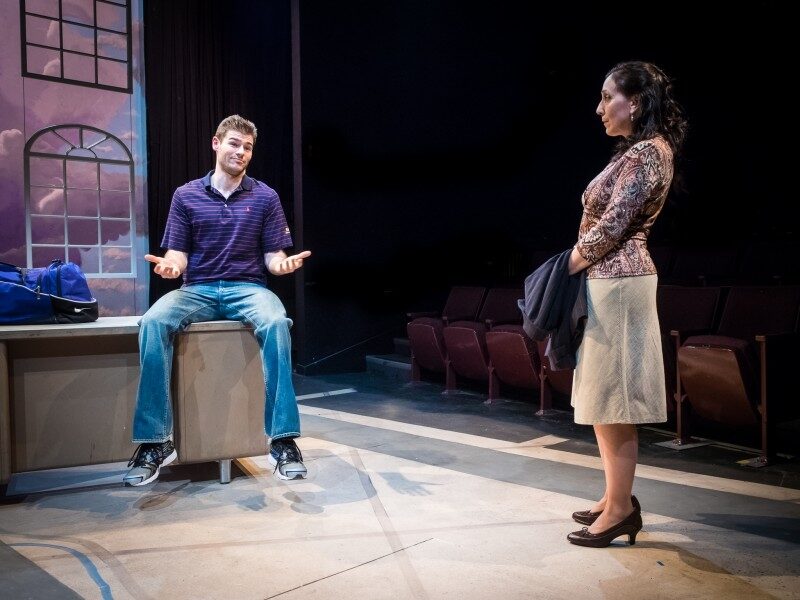Breaking the Mold of Old, White Males
Review of Third at ArtsWest

Breaking the mold of old, white males pontificating on the meaning and beauty of the Bard, Professor Laurie Jameson is a feminist, anti-hegemonic force of progressive thought — or so she thinks. Seemingly unaware that her life of tolerance has instead made her intolerant, Laurie (played by Marty Mukhalian) must re-evaluate her beliefs and behaviors when they’re called into question.
In the midst of her mid-life crisis, the professor’s story may seem like one for an older crowd, but Third succeeds in being relatable to all. Whether it’s Laurie’s teenage daughter, her senile father, or the titular character, Third, everyone in this play is questioning their habits and ingrained beliefs — doubtlessly, much like everyone in the audience has had to do at some point.
This relatability paired with an even mix of humor and heartbreak, makes the rather everyday subject matter of Third both appealing and successful. Late playwright Wendy Wasserstein’s play isn’t about anything magnificent or out-of-this-world. It’s about everyday people and their everyday problems, like spats between friends, mother-daughter misunderstandings, and facing stereotypes.
Third, a hunky jock whose wrestling scholarship landed him at the prestigious liberal arts school where Laurie teaches, is perhaps the most intriguing character. Played by the suitably hunky Mark Tyler Miller, Third is meant to shatter stereotypes, to prove that he’s not the “retro, heterosexual sociopath” his liberal arts school peers view him as. But the level of complexity written into this character isn’t quite enough. He certainly changes everyone in the play’s mind, but from the viewer’s perspective, the stereotype of the jock who breaks the stereotypes about jocks is nearly just as stereotypical.
The breakdown of Laurie Jameson is smoother and more believable, though this is perhaps just because we see her character more and in more intimate moments, whether it be talking to her analyst, tiptoeing around her father’s increasing memory loss, or trying to support a friend with cancer. Her cool, impenetrability — typical of most professors — falls away.
Third exemplifies how our biased perceptions, whatever their source, have an effect beyond our own minds. Whether it's political beliefs, past experiences, or cultural views defining the way we see the world, Wasserstein makes a case for willing to look beyond ourselves and see how others are living and why.
In addition to being entertaining, Third is poignant, intelligent, and astutely critical. Though the play wraps up just as Laurie’s eye-opening realization and transformation is beginning, it’s evident that she can and will become the tolerant person she had thought she’d been all along.
Third
ArtsWest
March 5-22


